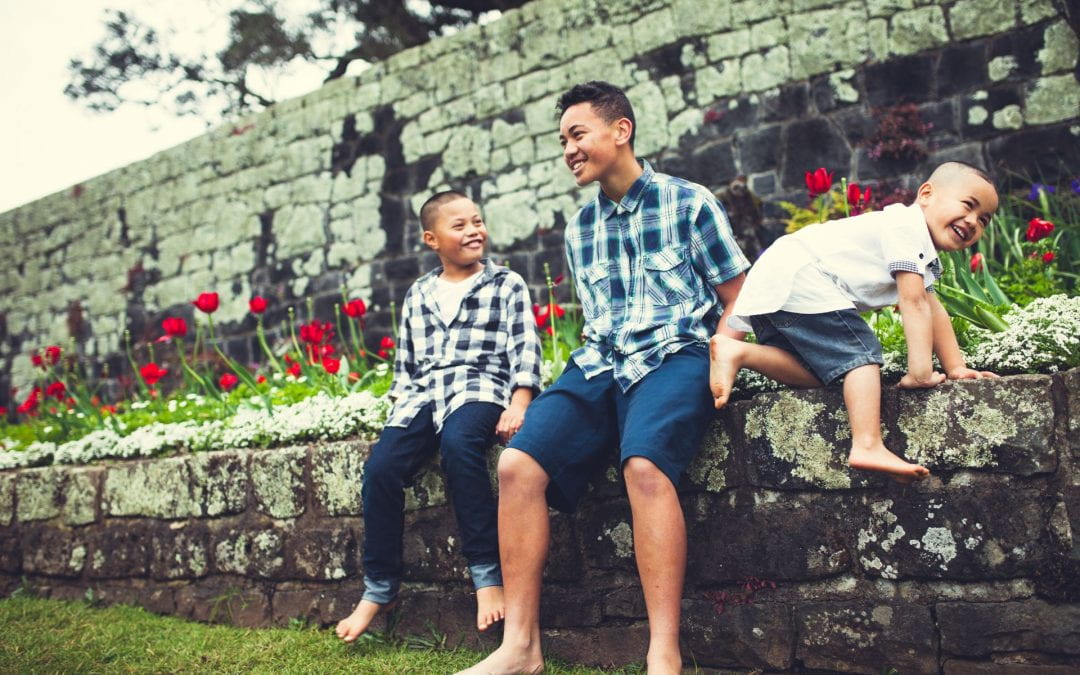A major research project aimed at the prevention of obesity, prediabetes and poor dental health among Pacific children has been awarded $1 million in funding from A Better Start National Science Challenge.
The two-year project, which gets underway shortly, will be led by Associate Professor Tupa’ilevaililigi Riz Firestone, a senior researcher at the Research Centre for Hauora and Health at Massey University.
“Dental caries, obesity, prediabetes, and type 2 diabetes are serious health conditions that are highly common among Pasifika peoples,” says Associate Professor Firestone. “The onset of these conditions starts earlier in life (childhood years), and impacts the social, health and wellbeing of the whole family.
“The lack of early identification and culturally appropriate intervention approaches enables these conditions to perpetuate for Pasifika families, particularly where there is limited understanding of how to support families to better manage these conditions within their own lived realities.”
Dental caries, obesity, prediabetes, and type 2 diabetes also place a significant social and economic burden on the New Zealand health system, says Associate Professor Firestone.
Obesity and type 2 diabetes are growing at an alarming rate, she says, and collectively cost the health system over $3 billion per year. Oral health care (including community oral health services, oral health care through district health boards, adolescent dental care, and emergency dental care) costs the health system approximately $250m per year.
“All of these conditions are the leading drivers for health inequalities, particularly among Pasifika peoples in New Zealand, and they experience the highest inequities with these conditions.”
Professor Wayne Cutfield, Director of A Better Start National Science Challenge, says this research project will provide important evidence-based knowledge about the targeted conditions affecting the health and wellbeing of Pasifika children and deliver practical actionable knowledge that will enhance the wellbeing of the children and their families.
It has three key objectives:
- Identify and diagnose dental caries, obesity, prediabetes and diabetes among high risk 11–13-year-olds. This will be a cross-sectional study design involving approximately 625 Pasifika, 631 Māori, and 1085 Other children to obtain high risk prevalence rates of the conditions.
- Co-design and pilot a family-centred intervention, Fanau ola manuia programme, which aims to build knowledge, lifestyle-based skills and support around children with the conditions. The intervention programme will be tailored to a Pasifika family context and piloted for 10 weeks by 20 families who will help design it through a series of workshops.
- Evaluate the overall research programme and provide an opportunity for knowledge exchange and translation of the findings across multiple contexts (Pasifika families, health services, community, education, and policy).
“For the first and second objectives of this project, it is important that these latent conditions are identified earlier in life in a more systematic way, as a preventative measure,” says Associate Professor Firestone.
“Additionally, using co-design and taking on a culturally tailored approach to address these conditions, where the family champion the Fanau ola manuia programme, is what will make a real difference to the lives of children and their families. The programme has to be realistic and work within the constructs of Pasifika family-life.”
The new project will be funded by A Better Start National Science Challenge’s new Pasifika Research Fund, announced last year.
The Challenge called for applications to the fund in July, seeking innovative research proposals aimed at delivering practical, evidence-based solutions specifically in the areas of healthy weight, successful learning and mental health and resilience.
Applications had to have a focus on enhancing the wellbeing of Pacific children and young people, their families and communities, and were assessed by an expert review panel. The panel included A Better Start board member and Pasifika community leader Associate Professor Collin Tukuitonga, and senior lecturer in the University of Otago’s psychology department, Associate Professor Mele Taumoepeau.
“A Better Start is committed to funding research to generate knowledge and understanding that can be applied to improve the health and education outcomes of Pacific children and young people,” says Professor Cutfield.
“We are excited about the new knowledge that will come from this new research project and the real and positive impact it will have on our Pacific communities.”

